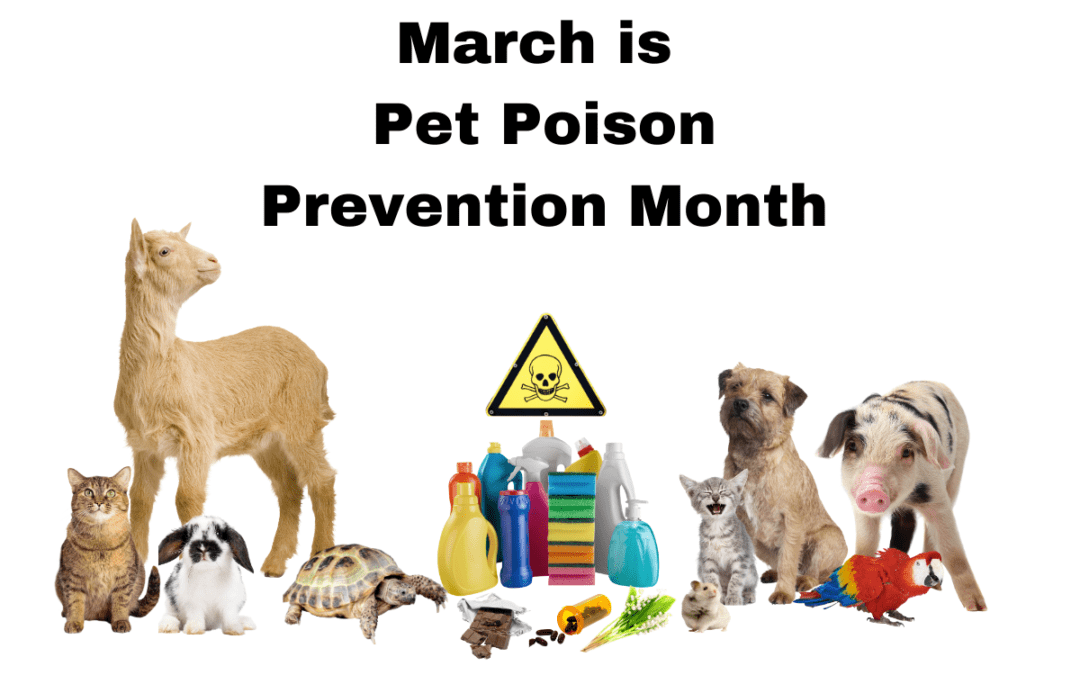Knowing what potential poisons may be in your pet’s environment is the first step in keeping your pet safe. March is Poison Prevention Month, and we have compiled a list of some of the top hazards and toxins you should keep out of reach of your pets.
- Over-the-counter medications and human prescription medications
- Veterinary medications: Chewable medications are very appealing to pets. It is important to follow label instructions and store medications out of reach of pets.
- Insecticides: Not following the directions on the label can be very dangerous for pets.
- Lawn and garden products: It is important to store these products out of reach of pets.
- Rodenticides: These are designed to kill mice and rats and can be just as toxic to your pets.
- Indoor and outdoor plants: Be sure you are aware of the plants you have in your pet’s environment before putting them around the inside or outside of your house. Lilies, if ingested even a small amount, can be toxic to cats leading to kidney failure. Other toxic plants include Lily of the Valley, Azaleas, and Rhododendrons.
- Household items: The most common items for this category include paint, cleaning products, and fire logs.
- Chocolate: The darker the chocolate, the more dangerous it can be. Theobromine; the compound found in chocolate. This is a stimulant comparable to a “caffeine high” for people. For cats, dogs, and most animals, it is toxic, causing vomiting and diarrhea. If ingested in large amounts, it can cause rapid heart rate, irregular heart rhythm, and seizures.
- Human foods: Do not let your pets ingest onions, raisins, grapes, garlic, alcohol, and xylitol. Xylitol is a natural, sugar-free sweetener found in many foods like pudding, gelatin, and in gum, toothpaste, and oral rinses for humans. Keep your pets away from these items.
Signs of poisoning include vomiting, diarrhea, muscle tremors, fever, abdominal pain, and listlessness. If you believe your pet has been poisoned, contact us right away or, if after hours, an emergency veterinarian. You may also find immediate help at www.petpoisonhelpline.com

